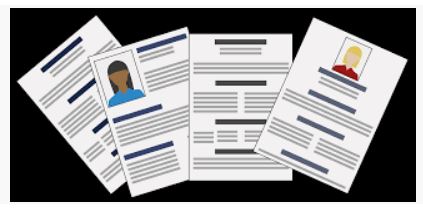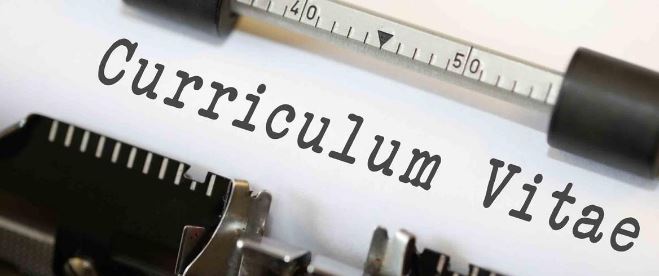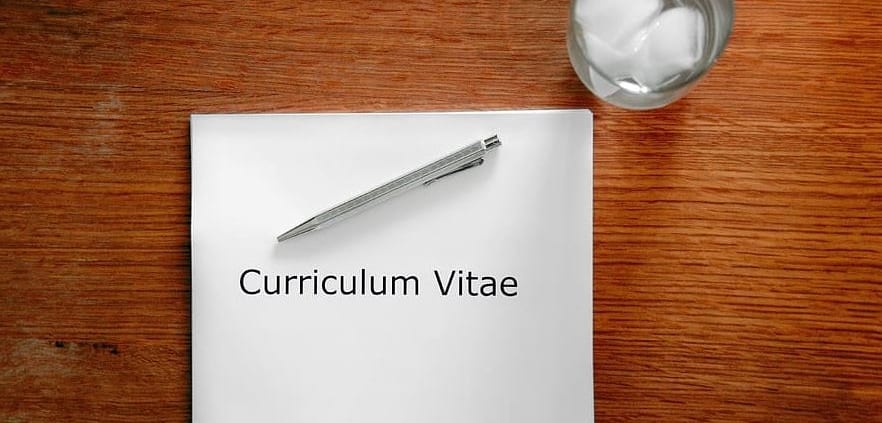How to Write an Effective CV
Writing a good CV can be an onerous task in itself. You are probably aware that writing a great CV is essential to landing you your dream job. That is why if you follow our simple and structured guidelines, it will eliminate a lot of your burden. When it comes to writing your CV, you should imagine yourself paying for an advertisement to be put into the paper and only the words that have value will be used. The exact same rules apply to composing a CV.
Your CV is your first point of contact with potential employers and it is essential to selling yourself as the ideal candidate for the job. Showcase your experience, skills, and personality and avoid irrelevant information.
The employer has large amounts of CVs to examine and may only have limited time. Some employers will briefly glance at your CV for a minute and sometimes only seconds. They rarely read the entire CV. On average, the estimated time for an employer to read a CV is 20 seconds. You are on limited time before an employer decides whether they would like to interview you or not.

Formatting
Let’s face it, first impressions do count, you have only a small amount of time to impress the employer. There is no set of rules when it comes to the formation of a CV, however, it is important not to waste space with unnecessary formatting. Your CV should be consistently formatted throughout. It should be clear, concise, and pleasant for the reader. E.G. If the date is set to the left-hand side of the page, followed underneath should be the name of the company and their details.
What type of CV should you choose
The are several different CVs you can choose from, this will depend on which is the correct one for you, where you are in your career and your future ongoing plans.
Chronological CV
A Chronological CV is the main type of Curriculum Vitae you may be familiar with and is the most commonly used. This CV will list your work experience history. It will highlight your educational qualifications, knowledge, and skills which should be listed in similar or the same industries. This CV also works really well if you are looking to progress steadily up the career ladder.
Qualification based CV
This is the ideal type of Curriculum Vitae for those looking for a career change. It is ideal for those returning into employment after being absent from work, are a graduate from college, and those who have received a qualification from a completed course.
Skilled based CV
Skilled based CVs will focus more on your skills and education rather than your work experience. This CV is ideal for anyone changing their career but who have no new qualifications, are taking a short break, and if they have seen a specific position they are interested in but may not have the direct experience.

Introduction
Start at the top of the page with your Name. Writing Curriculum Vitae as the heading is a bit obvious and can be wasted space. Type this on the left-hand side of the sheet as a footer and place the numbers of the pages on the right side of the page. The ideal CV will be structured correctly with a bit of formatting flare in particular to your headings such as employment history, skills, and qualifications, etc. Why not also add a little bit of colour to make your CV more eye-catching.
Personal Statement
The ideal CV starting point is your personal statement about you as a person. This gives you a great chance to sell yourself to the hiring recruiter and to convince them that your CV is worthy of reading.
Your personal statement should be no more than 50 words long, describing yourself and how you can help the employer for this role.
List what you will bring to the job and try to avoid any clichés such as having strong interpersonal skills and being a team player.
Career Summary/Career History
Your work employment history should be listed in chronological order, start with the most recent and ending with your first job. Only state your “work experience” if you are a recent school leaver or if you are attending school.
Your last/current job title dates from and to the company name. Job title two dates from and to the company name.

Key skills
It is necessary to showcase and outline your experience and what skills you could bring to the role and job title that you have applied for. Your experience and skills will support your personal statement. You should try name up to 5 key skills, for example: what you did, how you did it, and what was achieved.
Education and Qualifications
Give all qualifications and courses you have completed with all levels and grades you received if appropriate. List in order, working down from the highest qualification e.g. professional qualifications, a master level, degree level, diploma, certificate, and any other courses you may have completed. This can also be placed in order by the date.
Interests and achievements
Some employers like to see that you have some social life outside of work, so your interests and achievements give you the best chance to show what kind of person you are. You can demonstrate this by stating you are well all-round individual. If you play some sport, include this it shows you can play as part of a team and are health conscious. Useful additions would be voluntary experience or charity work which also shows you can work as part of a team, be generous with your free time, and are a helpful member of society. You could also list any memberships and awards you have achieved recently if relevant to you.
Referees
List two referees on your CV from a very recent or current employment or if you require “available upon request”. Always ask permission for given referees to be contacted.



